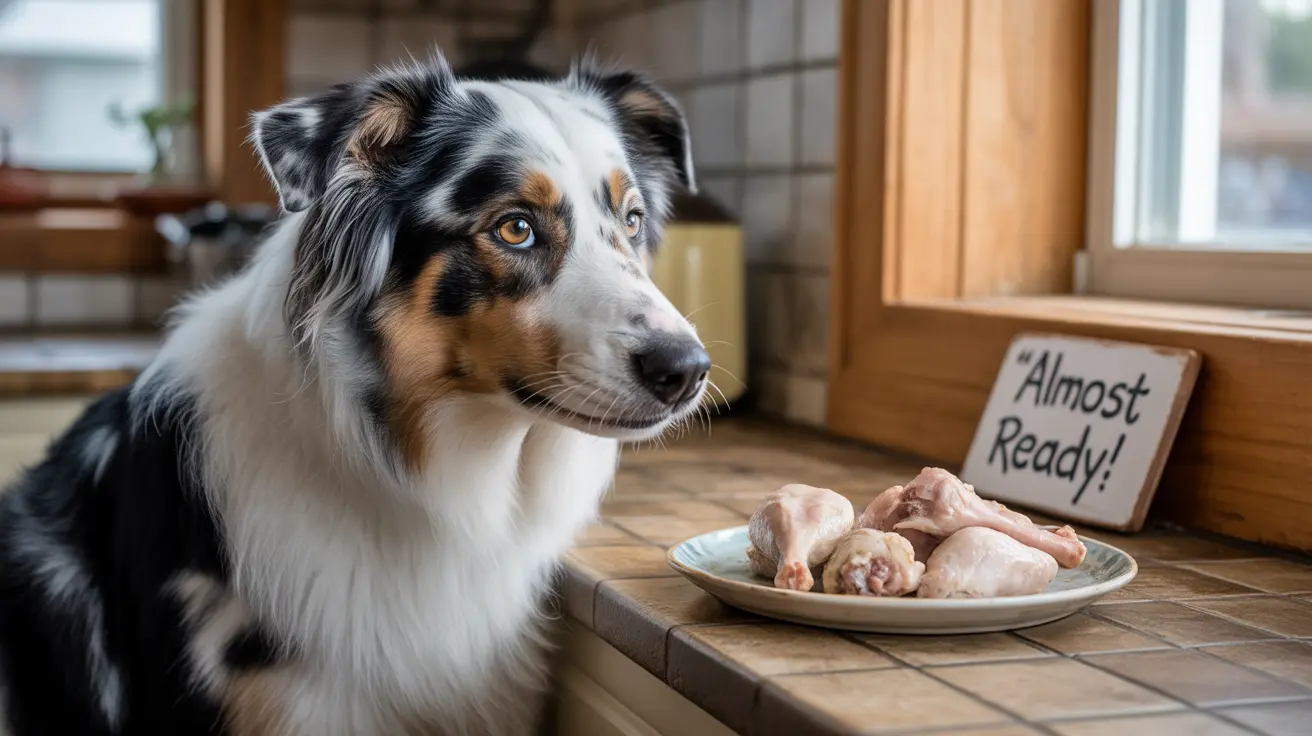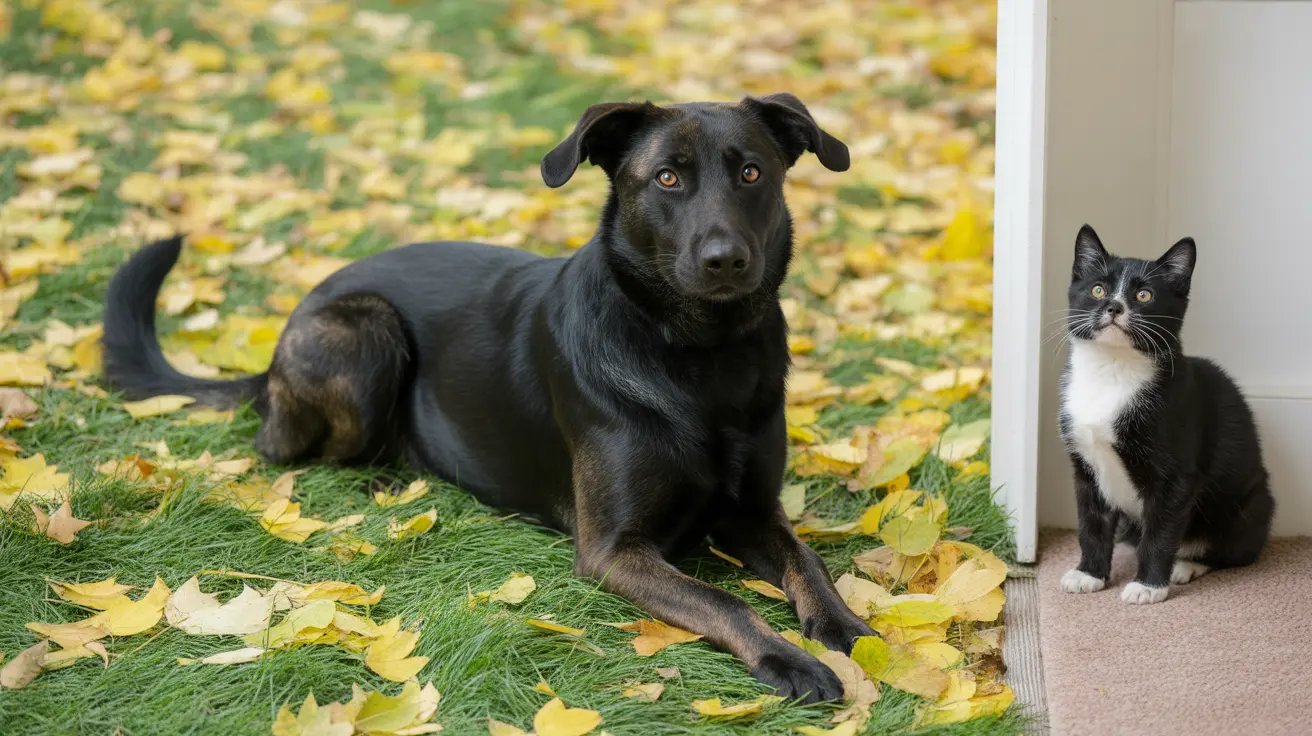Many pet owners wonder about feeding their dogs cooked chicken, and for good reason. As a lean protein source commonly found in commercial dog food, chicken can be a healthy addition to your dog's diet when prepared correctly. However, understanding the proper preparation methods, potential risks, and nutritional benefits is crucial for your pet's safety and wellbeing.
In this comprehensive guide, we'll explore everything you need to know about feeding cooked chicken to your dog, including safe preparation methods, nutritional benefits, and important precautions to keep in mind.
Safe Preparation Methods for Cooked Chicken
When preparing chicken for your dog, stick to simple cooking methods without added seasonings or oils. The safest approaches include:
- Boiling: The simplest and healthiest method
- Baking: Without oils or seasonings
- Steaming: Preserves nutrients while keeping the meat lean
Always ensure the chicken is thoroughly cooked to an internal temperature of 165°F (74°C) to eliminate harmful bacteria. Remove all bones before serving, as cooked chicken bones can splinter and cause serious internal injuries.
Nutritional Benefits of Chicken for Dogs
Cooked chicken offers several important nutritional benefits for dogs:
- High-quality protein for muscle maintenance
- Essential amino acids
- B vitamins, particularly niacin and B6
- Minerals including phosphorus and selenium
- Low-fat content (when skin is removed)
While nutritious, chicken alone doesn't provide complete nutrition. It should be part of a balanced diet or used as a supplement to quality commercial dog food.
Important Safety Precautions
When feeding cooked chicken to your dog, keep these crucial safety guidelines in mind:
- Remove all bones before serving
- Avoid seasonings, spices, and marinades
- Skip the skin to reduce fat content
- Cut into appropriate bite-sized pieces
- Introduce gradually to watch for allergic reactions
Portion Sizes and Frequency
The amount of chicken to feed your dog depends on their size, age, and activity level. As a general rule:
- Small dogs (under 20 lbs): 1-2 tablespoons per serving
- Medium dogs (20-50 lbs): ¼ to ½ cup per serving
- Large dogs (over 50 lbs): ½ to 1 cup per serving
Chicken should make up no more than 10% of your dog's daily caloric intake when used as a treat or supplement.
Signs of Chicken Allergies or Sensitivities
Watch for these potential signs of chicken allergies:
- Itchy skin or excessive scratching
- Gastrointestinal upset
- Ear infections
- Red or irritated skin
- Chronic paw licking
If you notice any of these symptoms, consult your veterinarian immediately.
Frequently Asked Questions
Can dogs eat cooked chicken safely, and what are the best ways to prepare it?
Yes, dogs can safely eat plain, thoroughly cooked chicken. Boil, bake, or steam the chicken without seasonings, oils, or marinades. Remove all bones and cut into appropriate-sized pieces before serving.
What are the risks of feeding raw chicken to dogs, and why should it be avoided?
Raw chicken poses significant risks of bacterial contamination, including Salmonella and Campylobacter. Raw bones can also cause choking or internal injuries. It's best to always serve fully cooked chicken to your dog.
How can I tell if my dog is allergic to chicken, and what are the symptoms to watch for?
Common signs of chicken allergies include itchy skin, gastrointestinal upset, ear infections, and excessive paw licking. If you notice these symptoms after introducing chicken, consult your veterinarian.
Can I give my dog chicken as a regular substitute for their dog food, or should it be a treat?
Chicken should be used as a supplement or treat rather than a complete meal replacement. Commercial dog food provides balanced nutrition that chicken alone cannot match.
What are the nutritional benefits of feeding chicken to dogs, and how can it be incorporated into a balanced diet?
Chicken provides lean protein, essential amino acids, B vitamins, and minerals. It can be incorporated as a meal topper, training treat, or part of a balanced homemade diet under veterinary guidance.
Conclusion
Cooked chicken can be a healthy and safe addition to your dog's diet when prepared properly. Remember to always remove bones, avoid seasonings, and introduce new foods gradually. If you have specific concerns about your dog's diet, consult with your veterinarian for personalized advice.






